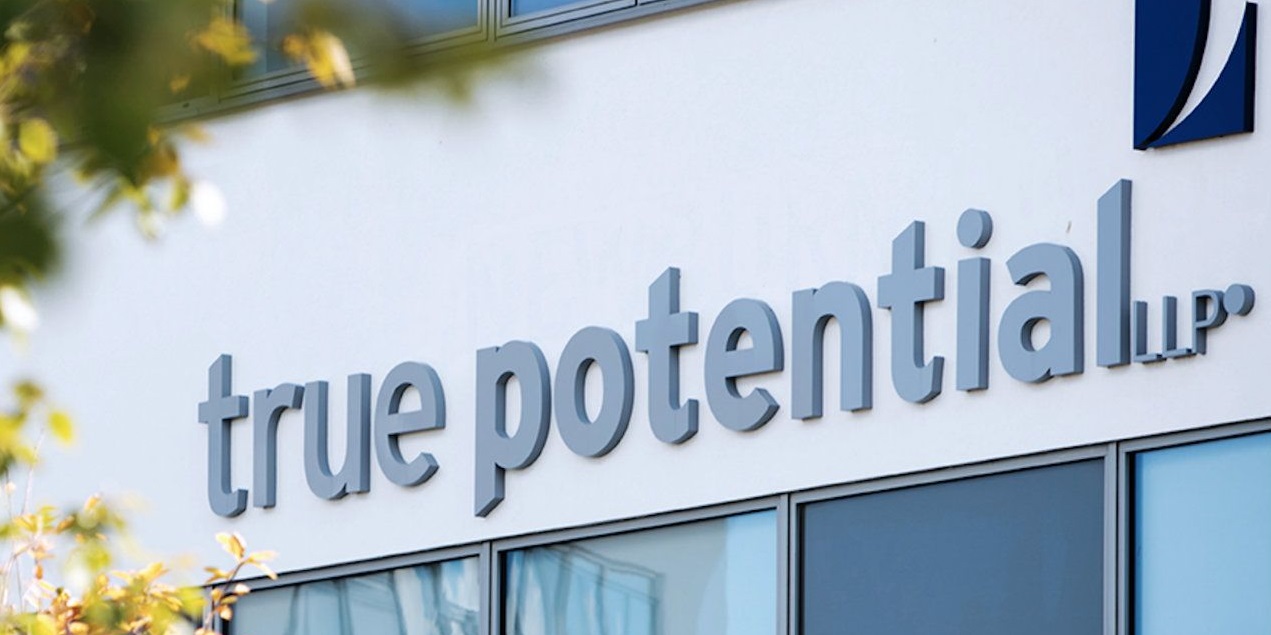I hope that you have had a good Easter. Welcome to the new tax year, a time for opportunity to maximise your ISA and Pension allowances for example – better earlier than later! Watch-out too as the Taxman cometh if you have too much in dividends, interest or investment gains as the tax-free allowances are more likely to pose a problem, especially with the increases in Pensions and the Minimum Wage at the same time.
Year-end investment reports are now being produced too and these should show a healthy rise versus negativity which has enveloped too much for too long, so a welcome change.
A celebration
 So, open-ended mutual funds were introduced by Edward Leffler, a centenary ago on 21 March. They have enabled small investors everywhere to access the opportunity of investing as opposed to buying and holding shares (typically) directly and of course to have imperative diversity and easy access to their money etc, at a fair price. It revolutionised opportunity for lower class and middle America who could take a stake in their own capitalism and of course has spread across the world.
So, open-ended mutual funds were introduced by Edward Leffler, a centenary ago on 21 March. They have enabled small investors everywhere to access the opportunity of investing as opposed to buying and holding shares (typically) directly and of course to have imperative diversity and easy access to their money etc, at a fair price. It revolutionised opportunity for lower class and middle America who could take a stake in their own capitalism and of course has spread across the world.
Mutual funds now manage $63trillion worldwide, from government bonds to venture capital and alternative assets like property. However, they are under attack as new vehicles like ETFs have arrived, potentially offering cheaper access and fees and cutting-out the middle man (in the old days here it used to be a 3% commission to the agent and then a 0.5-0.75% annual servicing fee to him to ‘look after’ your advice whilst the mutual fund holder would take a fee for the new investment and also charge a management fee of course).
On top of this, their more mature brethren, Investment Trusts (created in 1868), have been relegated to the back-burners by many advisers, for many reasons but that also does encourage a greater opportunity for the astute. Advisers and the fund providers must be aware of these changes and incorporate the different receptacles for their clients as needed, to help them build the portfolios of assets they should have but it seems, many don’t do that. There are problems – and size of the advisory firm is one of them – too big and centralised regulation and fund selection means they cannot exploit opportunities which the smaller, deft-footed adviser or investor can. For example, Black Rock manages $10trillion so if you entrust it with your assets, how much can it afford to put in any single investment proposition for its ‘balanced’ clients? Can it buy enough, access it at all and also know it can exit?
Today’s investors may bear in mind that the Mutuals’ launch in 1924 was at the boomtime for the US market, which peaked in 1929, a bubble dominated by a small range of new technology assets. We know what happened to those who put over-reliance on those at the time, prescient for today’s tech-based bubbles perhaps but now with multi-noughts on the figures involved – potentially very scary. I am reminded too… UK investors added more to US funds in the first quarter of 2024 than over the last nine years combined. In the US, 62.5% of investors are bullish, the highest since 2021 after the pandemic melt-down (and the percentage of investors saying they were bearish as opposed to being neutral was 14.1%, the lowest since early 2018)… They say no one rings a bell at the top of a market… maybe people just all go deaf…
Inflation
 So shop inflation has plummeted, to 1.3% in March with food and non-food prices actually falling on the year. However, political increase (Business Rates and the biggest ever increase in the Minimum Wage) and insurance are cost pressures which retailers have no choice but to pass-on, creating inflation. In the States, the figures are nudging upwards again…
So shop inflation has plummeted, to 1.3% in March with food and non-food prices actually falling on the year. However, political increase (Business Rates and the biggest ever increase in the Minimum Wage) and insurance are cost pressures which retailers have no choice but to pass-on, creating inflation. In the States, the figures are nudging upwards again…
The news is positive but base line commodities – and oil – have been advancing after significant falls – and no need for me to comment on cocoa – sadly a staple commodity we held but sold far too soon (and now far too frothy so a collapse is long overdue, practical problems with disease, etc, noted). This will increase prices when it feeds-through. Short-term though, it helps pave the way for cuts in interest rates but curiously, SterSTling was steady on the news whereas in theory it ‘should’ have fallen. In this context it suggests the markets are happier the economy is stronger and that that is better than the fact that interest on their bonds will be lower…
St James’s Place – complaints
The law firm orchestrating complaints for apparently 19,000 people against SJP for failing to have provided any ongoing advice to justify the ongoing fee to advisers, is ostensibly taking 40% plus VAT of any compensation which it may secure. As lawyers, the firm acting does not have to follow the FCA’s rule of a maximum of 30%… all we’d say is that the Financial Ombudsman Service is a free service… so please, complain to SJP yourself first if there is an issue and go to the FOS if your complaint is declined and you believe you have grounds for compensation.
Only engage a Claims Manager if there are special issues which may benefit from their involvement – we are regulated to help in such cases ourselves but don’t take a proportion of the compensation which is rightfully complainants’. Indeed, we should go as far as saying we do all we can to encourage anyone with a complaint to not engage a claims’ chasing company (or even ourselves) but to try to do it themselves if they can. The FCA says the same in loud and clear words.
Good news, bad news

A lack of dynamism in the boards of Abrdn Property Income Trust and Custodian Property saw the vote to merge defeated. Abrdn’s shares drifted 8% on the news and trade at a prospective 43% discount to the value of the assets attributed to shareholders and which will now be unlocked (less costs etc) over the next several years as the assets are to be sold.
We were against it and have provided ideas for a dynamic merger which would ‘force’ Abrdn’s shareholders to accept but ‘they’ don’t seem to have had the nous to imagine the inevitable outcome. Custodian, which we own too, had an immediate relief rally of 12% so effectively we win twice. Let’s see, if the Abrdn Trust unlocks the 85p say over the next four years (alongside the generous dividends from rents meantime), that is worth a capital uplift over the present share price of nigh 100%, so plenty of comfort cushion for the odd thing not going well and no hope of special positives either. We are pleased to have a useful stake. One we don’t hold – Hipgnosis rises 7% on a new valuation suggesting it’s worth nearer $2billion. At 68p, the shares are still a long way from the float price though.
Real Estate Investment Trusts

With the US equity market in hyperdrive, many have forgotten the need to diversify. However, you must! Commercial property is an attractive option which we should all have in our portfolios – especially when it is too cheap. There are myriad reasons but investors seem to forget that rents are usually solid and usually only rise and as long as you spread your eggs wisely and widely and don’t borrow too much to gear-up your exposure, the returns can be very attractive. You can cover industrial units, supermarkets, office blocks, overseas’ consulates, shopping centres, storage units, infrastructure assets, ground rents, hospitality… but at the moment, there is colossal value in the face of technical reasons why investors are not buying as much as they always used to do.
One of the most compelling ways of investing is in buying quoted companies called REITS and certainly ‘better’ than buying your own property! This is especially the case today as so many are trading at deep discounts to the values of their underlying assets. There are over 50 REITs on the UK market with a combined market capitalisation of over £50billion. These receive the rents on 100% their real estate, so if you can buy a share at say 50% of the underlying value but in reality as you pay half (say!) you receive twice as much income as you would buying the property directly (and none of the associated hassles!)
As interest rates rise, borrowing money (and ‘fixed’ rents) means commercial property is less attractive in the short-term but also the opposite is true. We have added significantly to this asset class, for the high incomes available, the very discounted share prices compared to the underlying assets’ values (which in themselves the cynics could say have been written-down by prudence too far anyway), because many of these discounts will unravel as extra bonuses to us (through corporate action including close-downs), also because we expect interest rates to fall – and on top of that, we believe they represent significant comparative safety against a major crash in the US mainstream stocks.
Alternatives

We have had some silver for clients for some time. This is for a number of reasons, from its alternative (to shares etc) protection qualities (bullion) to its industrial usages (including green applications) but as you’ll know from us, because fundamentally it has been too cheap. It has also been plumbing all-time lows against gold, as opposed to keeping in step.
However, finally the price has broken upwards after having tried many times and some momentum is propelling the price upwards (or I should say ‘has’ as every trend stops ‘today’ and cannot predict the future). It has been the highest since 2013 but the December 2010 level will take some progress to exceed.
I don’t envisage any Hunt Brothers’ 1980-style market manipulation (where they drove a nigh ten-fold increase in the price to just under double its present nominal value, even forgetting inflation and till it plummeted as the bubble burst, leading many to bankruptcy as they had borrowed to invest too) but a little more interest by investors could have exponential effects on the price.
We haven’t let any go yet but conversely, we think that gold is too dear short-term, fuelled by central banks buying it for themselves as a currency of last resort (remember when Labour, under Gordon Brown, told us that was old hat?) Another attractive way into the commodity (and gold in fact) is through miners where their prices have not reacted the same way to the higher bullion levels regardless. They are geared plays – if it cost them $25 an ounce to mine silver, they make a loss if the price is less but when it is $28, their profit rockets as their costs are static for some time.
Banks – the old and the new

I have spoken before on how it seems the established banks have a death wish to lose custom. Their lending policies seem archaic and designed to drive prospective borrowers away from them and into the hands of the more flexible and open ‘new’ lenders for their business purposes. It is a sad indictment as I am not sure what will be left; there isn’t the fat on ‘only’ doing domestic mortgages and current accounts, after all.
I appreciate that some of this is compounded by ‘regulation’ (or shall I say their interpretation of it), from verification of business customers’ details every so many years (even when nothing has changed and it seems often they don’t have the original details to be able to check the ‘new’ information against). We have some business accounting with Santander and it is threatening restricted access to our accounts because its personnel don’t know what a partnership is and that it doesn’t have ‘shareholders’ etc (outside of the provisions of the Partnership Act 1890, I should add).
Then I also have a small account with RBS and need to cancel a couple of standing orders… so I go online and it won’t let me cancel them as the next payments aren’t due for more than 250 days – I mean… really? Try to amend the payment date… and no, you can’t amend the payment as you have to re-enter the payee details, then it tries to tell you that you are establishing a new payment to an existing recipient… in these days of customer care and looking after customer’s technological needs… really?!
Real potential
 Consolidator True Potential has been buying-in considerable business and paying advisers 8% for the value of the funds it can manage for them (it paid out £372milion from the first quarter of 2022 to the third quarter of 2023 alone). It is owned by big private equity firm Cinven but has it paid too much? It has financed a considerable amount by £800million of borrowed money and the latest news suggest a £101million bond financed by Apollo is paying a variable interest rate which went over 11% at the end of 2023. It now runs over £40billion but if markets fall and interest rates stay high, will the model work?
Consolidator True Potential has been buying-in considerable business and paying advisers 8% for the value of the funds it can manage for them (it paid out £372milion from the first quarter of 2022 to the third quarter of 2023 alone). It is owned by big private equity firm Cinven but has it paid too much? It has financed a considerable amount by £800million of borrowed money and the latest news suggest a £101million bond financed by Apollo is paying a variable interest rate which went over 11% at the end of 2023. It now runs over £40billion but if markets fall and interest rates stay high, will the model work?
Indeed, what if the same floods of new investors go the other way as they see falling values rather than rising ones (bolstered by the potentially artificially high US markets)? Do those same investors realise that the model into which they have bought is basically ‘unadvised’ so to whom do these 75,000 investors turn when they have concerns about what might be happening to markets (and even then, it is only a remote service)?
This is what their Chief Executive said recently:- ‘It’s very rare our clients need advice’.
We are perhaps of the greatest value for our clients when things are difficult and they need guidance and advice. Even the most experienced and sophisticated need that too, even other financial advisers and that is why our clients cover all echelons of society from the smallest to the rather larger investors as they appreciate that. Indeed, when things go badly, the reassurance we can provide (such as during the pandemic) saved many investors lifetimes’ worth of our costs… helping them not do the wrong thing and to do more of the right thing. It’s all fine when things are going all fine…
AI

Most won’t have missed the rocketing recent performance of Nvidia because of its AI technology. However, what is curious is that despite the inevitable phenomenal benefits of AI in terms of business opportunities and cost savings etc, there are many lesser-known companies which are doing work in these arenas where their shares ‘haven’t changed’.
These can be firms dealing with ‘smart buildings’ to cyber security, pharmaceutical development, etc. Purposefully I have not made a vast list! However, the point is that there are opportunities across the markets which do not have a premium for their engagement with AI. We shall try to ensure we have a few of those, especially where they are undervalued for other reasons too, so a potential bonus for ‘free’! And before you become confused, don’t buy Genus for its AI…
My best wishes
Philip J Milton DipFS CFPCM Chartered MCSI FPFS FCIB
Chartered Wealth Manager
Fellow Of The Personal Finance Society, Fellow Of The Chartered Institute Of Bankers





